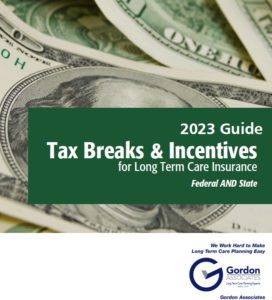A surprising number of seniors still believe that Medicare will cover all their long term care expenses, according to a study by AARP. But here’s the reality: Medicare offers limited-time long term care coverage that applies only to skilled nursing care. Long term care insurance (LTCI), on the other hand, covers many types of care for the length of your selected benefit period.
Medicare’s Long Term Care Benefit Triggers
For long term care to be covered under Medicare, you must meet these stringent requirements:
- You must first be admitted to a hospital for at least three nights. Days under observation don’t count.
- You must then be admitted to a Medicare-approved facility, in a Medicare-approved bed.
- You must be receiving skilled nursing home care.
In contrast, long term care insurance coverage doesn’t require a hospital admission and isn’t triggered by the need for skilled nursing care. LTCI benefits are triggered by the inability to perform two out of six activities of daily living—expected to last 90 days or more—or by a diagnosis of cognitive impairment/Alzheimer’s disease.
How Long Does Medicare Pay for Skilled Nursing Care?
Medicare pays for the first 100 days of skilled nursing care, at the following tiered payment levels:
Days 1-20 – Medicare pays 100% of benefits.
Days 21-100 – Medicare pays benefits, minus a $176 coinsurance per day (for 2020). You pay the daily $176 coinsurance benefit, unless you have a Medicare supplement plan that will cover it.
Days 101 and beyond – You pay all costs going forward.
For more specifics, visit the Medicare website.
In Comparison: What Long Term Care Insurance Covers
Long term care insurance is very different. It not only covers additional forms of care (home care, assisted living, adult day care, etc.), but will cover it at the same level for the length of your benefit period.
For example, a typical long term care insurance plan might pay $4,000 per month for four years, following a 90-day elimination period (during which Medicare may pay for skilled nursing care). Remember, you choose your benefit level, duration and elimination period, so plan designs vary. But considering that the average duration of long term care is 3.7 years for women and 2.2 years for men, most people will need long term care beyond what Medicare provides.1
The bottom line: while Medicare provides limited long term care coverage, LTCI provides broader, more comprehensive protection. For more information about what long term care insurance covers, email us at info@galtci.com. Or complete our short online form to request a quotation.

 To help determine if long-term care (LTC) insurance is right for you, we are offering a FREE informational guide. This is a comprehensive booklet that will answer many of your questions about tax breaks and incentives for LTCI for federal and state taxes.
To help determine if long-term care (LTC) insurance is right for you, we are offering a FREE informational guide. This is a comprehensive booklet that will answer many of your questions about tax breaks and incentives for LTCI for federal and state taxes. To help determine if long-term care (LTC) insurance is right for you, we are offering a FREE informational guide. This is a comprehensive booklet that will answer many of your questions about LTC and assist you with your health care planning.
To help determine if long-term care (LTC) insurance is right for you, we are offering a FREE informational guide. This is a comprehensive booklet that will answer many of your questions about LTC and assist you with your health care planning.